|

|
Think Again:
The most effective leaders score high in both confidence and humility. Although they have faith in their strengths, they’re also keenly aware of their weaknesses.
|
48 |
|
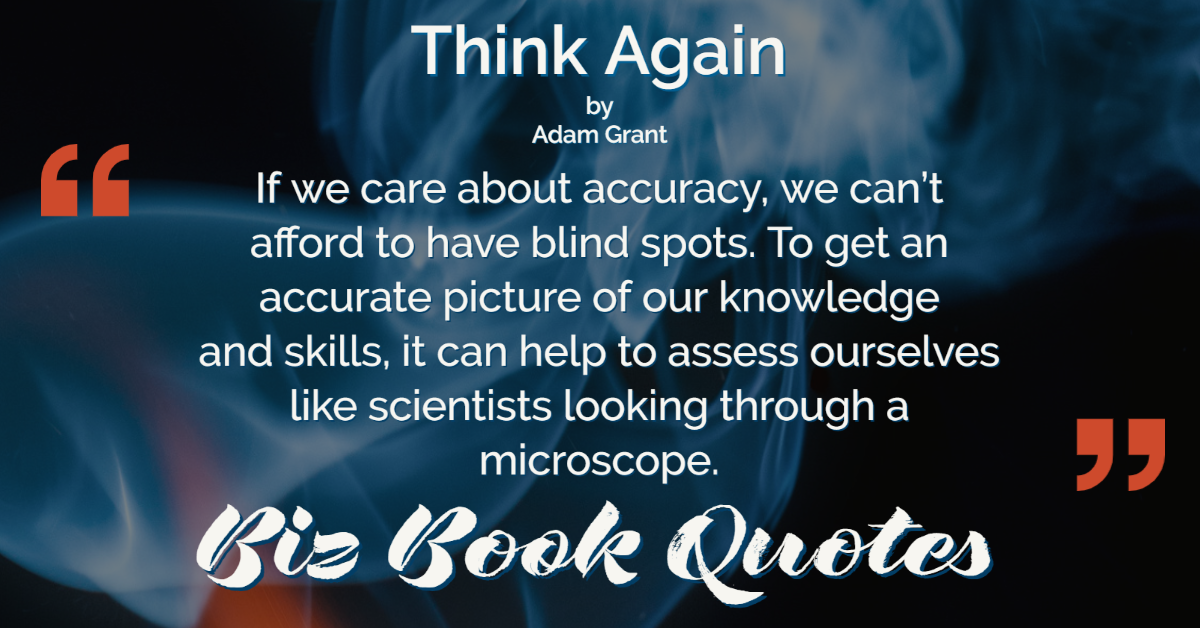
|
Think Again:
If we care about accuracy, we can’t afford to have blind spots. To get an accurate picture of our knowledge and skills, it can help to assess ourselves like scientists looking through a microscope.
|
48 |
|
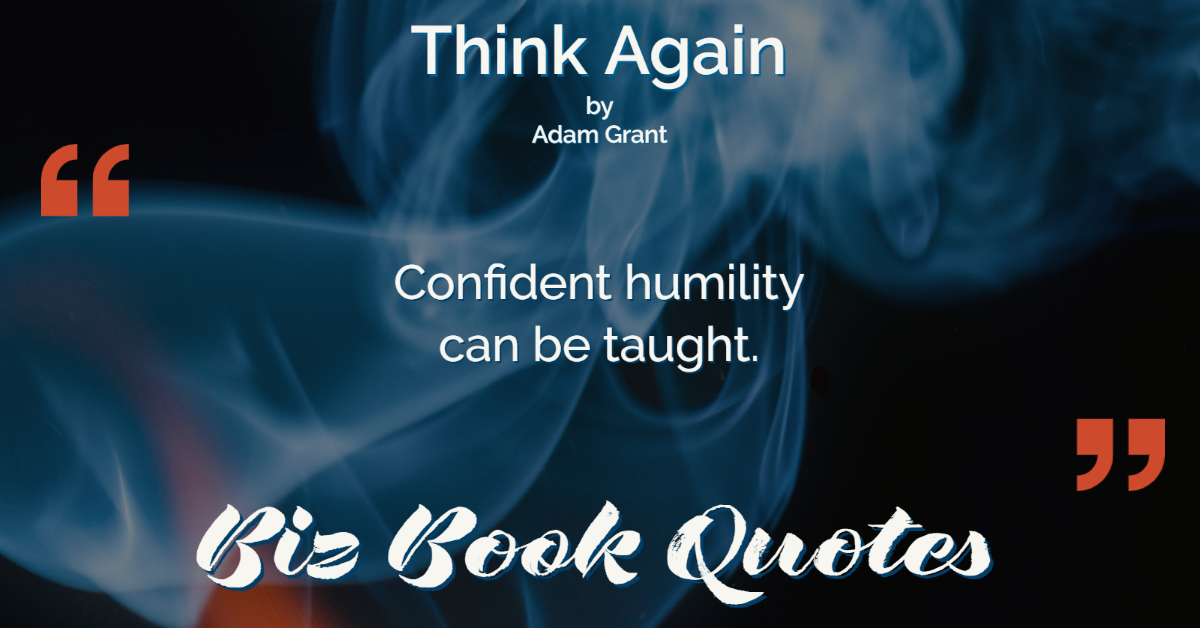
|
Think Again:
Confident humility can be taught.
|
48 |
|
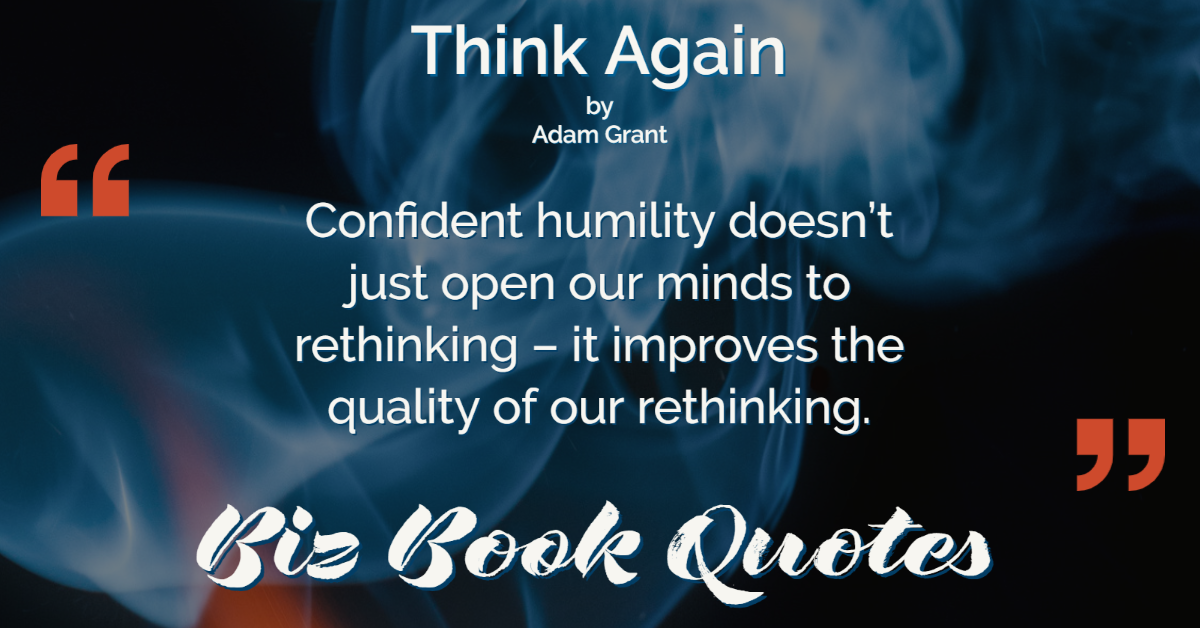
|
Think Again:
Confident humility doesn’t just open our minds to rethinking – it improves the quality of our rethinking.
|
48 |
|
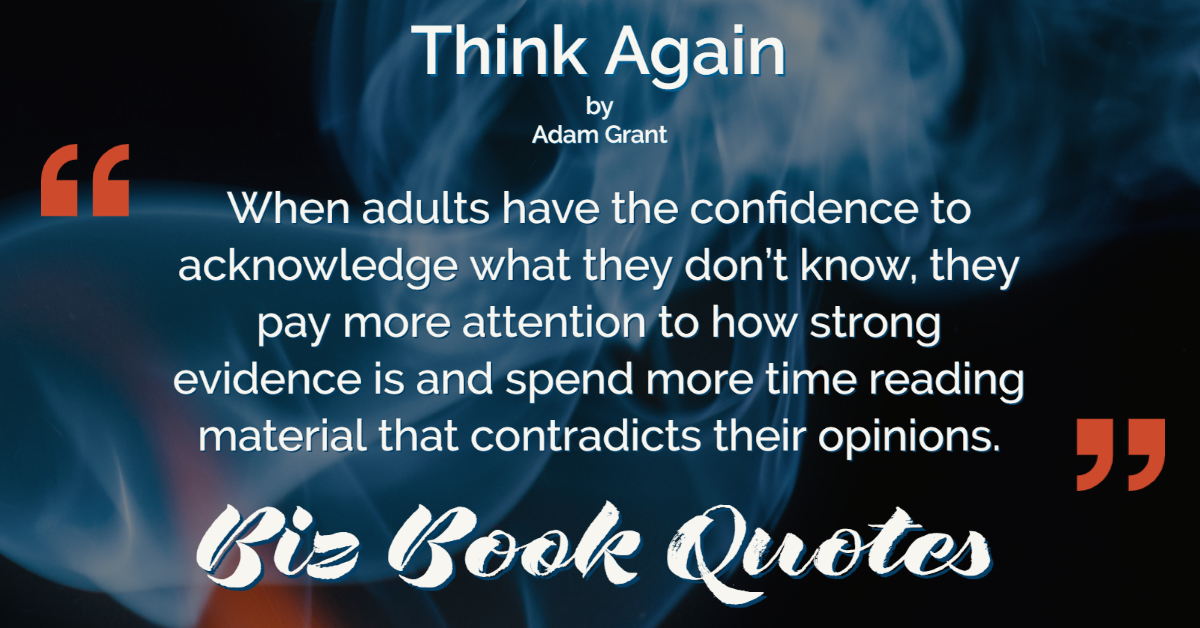
|
Think Again:
When adults have the confidence to acknowledge what they don’t know, they pay more attention to how strong evidence is and spend more time reading material that contradicts their opinions.
|
48 |
|
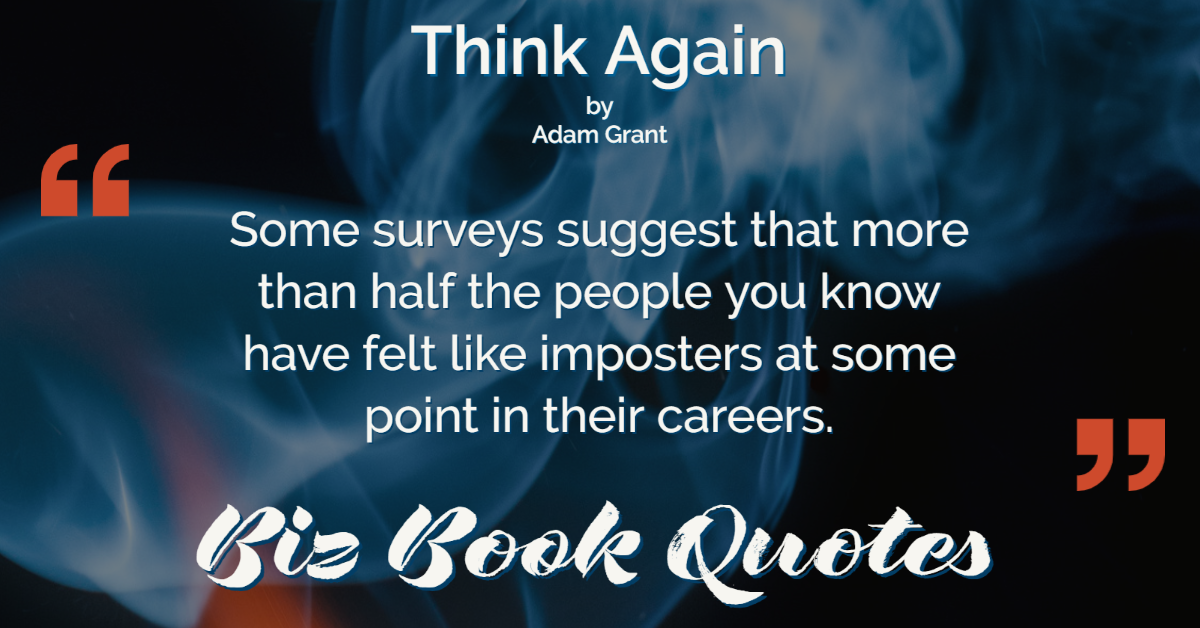
|
Think Again:
Some surveys suggest that more than half the people you know have felt like impostors at some point in their careers.
|
50 |
|
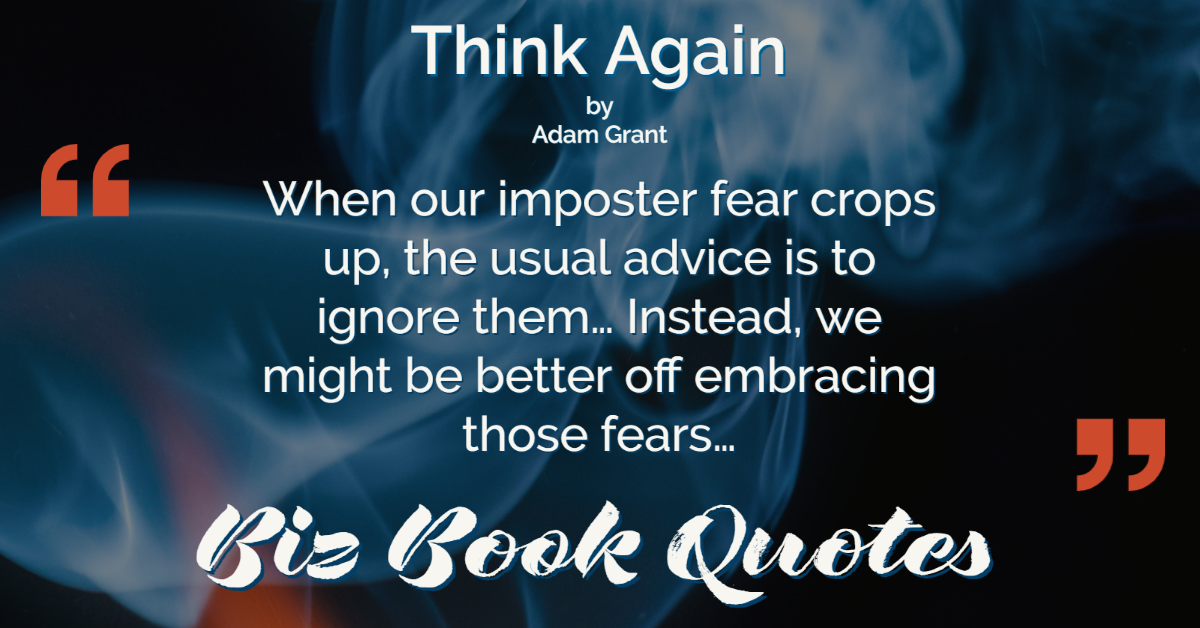
|
Think Again:
When our imposter fear crops up, the usual advice is to ignore them… Instead, we might be better off embracing those fears…
|
51 |
|

|
Think Again:
…confidence can make us complacent. If we never worry about letting other people down, we’re more likely to actually do so.
|
52 |
|
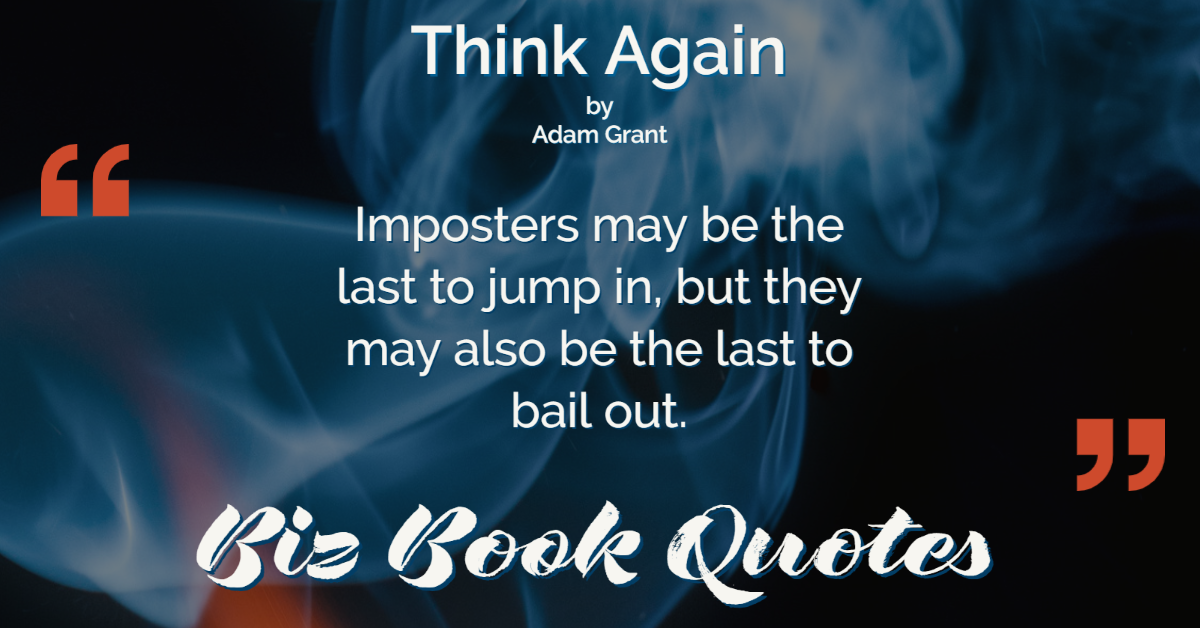
|
Think Again:
Imposters may be the last to jump in, but they may also be the last to bail out.
|
52 |
|
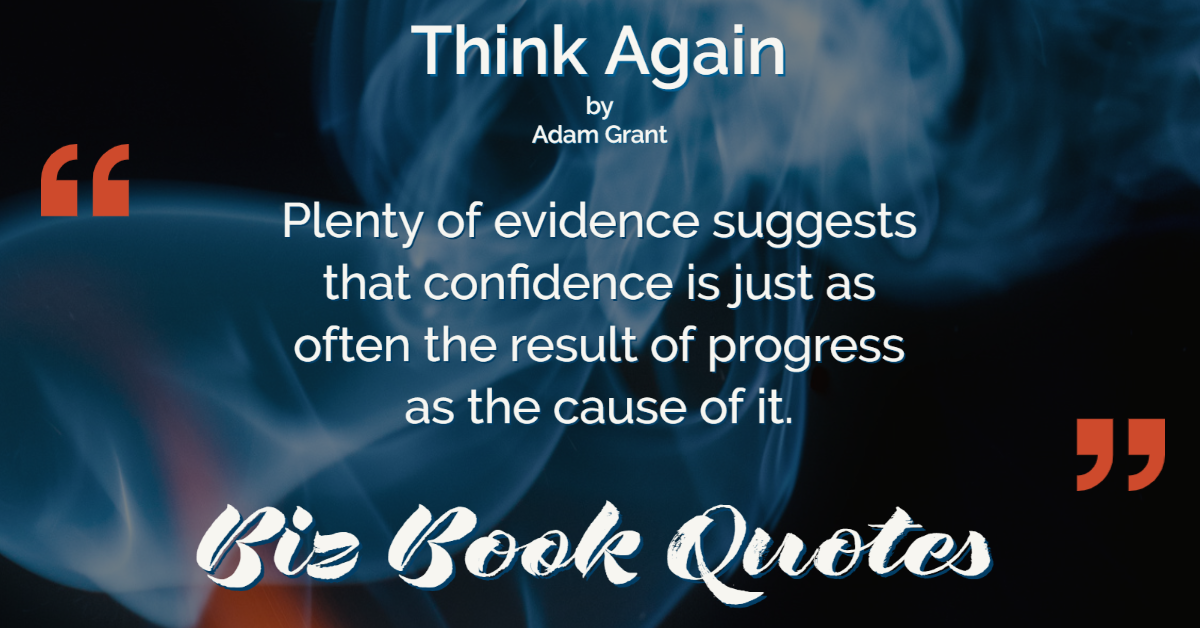
|
Think Again:
Plenty of evidence suggests that confidence is just as often the result of progress as the cause of it.
|
53 |











